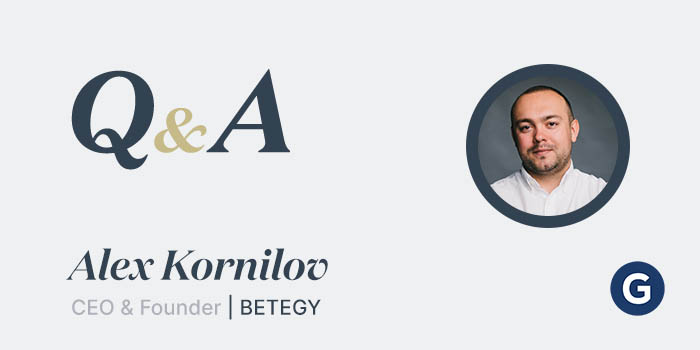As operators look to improve player engagement and retention rates, the industry has seen a shift in focus toward the introduction of new social betting features as a possible solution. We spoke to Alex Kornilov, CEO and Founder of BETEGY to get his thoughts on the recent trend.
Q: There has been an increased focus on the introduction of new social features across the industry – where did this concept originate from?
The last 10 years has seen a tendency towards social engagement, as players are used to not only sharing lifestyle activities but also their betting and gaming activities, especially when it comes to big wins! This has changed the dynamic a lot in recent years, as before, gambling tended to be more private – with players now much more open to sharing both their successes and losses.
In its essence, it is hard to create a successful social platform that can truly provide a base for social betting, but when done right, it’s very effective. When you take a standard betting operator and look to lay it on with social features, there are plenty of risks to be had if the foundations are not solid. To get this perfect, you really have to think about KPIs with social platforms and what you’re looking to achieve. Approaching this properly certainly means a massive rethink in order for it to succeed.
Q: Which social betting features are proving to be the most effective?
There are many emerging social betting features that are performing well, notably the implementation of the copy bet feature is proving to be very popular. It really incorporates all the components of social betting, creating a discussion around particular bets which can be debated amongst players and either copied or dismissed – either way it gets people talking. We’ve seen this work really strongly in the online trading space (such as with EToro), so I definitely see plenty of scope for growth in this area.
So how does that merge into our industry? We’re seeing great traction with the influencer element, as bringing influencers into the mix is ensuring some strong engagement, providing an incentive for audiences to get involved. Let’s take a look at Michael Owen’s betting tips (for example), this enables players to bet exactly in line with successful punters. It opens a new door for tipsters to fill this space, allowing them to grow an audience who want to bet in the same way they do.
Q: Which markets/demographics do you see these features performing well in?
Almost everywhere, given the prevalence of smartphone adoption and the general popularity of social media. Although of course, English-speaking markets will always have an edge, as the majority of the ‘digital world’ online use English as the lingua franca.
Looking at the US in particular, with the rapid expansion of new markets getting regulated, social betting will be implemented from the very beginning given the adoption that already exists there. This inevitably will provide a serious head start for the concept to scale up, as the majority of players will already be more accustomed to the idea. In a recent visit to Monmouth Park racetrack in the US for example, you can really see just how much of a social element betting can be over there, with punters even pooling their bets together.
Of course, given the social world is the domain of Gen Z and millennials, naturally one would also expect social betting to perform best with that demographic. It has been there all their lives, so the idea of interacting and sharing their thoughts online is something that comes with ease.
Q: How do you see this concept progressing over the next few years?
I think it’s going to carry on getting bigger and bigger. If we look at the financial markets and stock prices, along with derivatives where the price is defined based on the underlying value of the product, I think for betting in many ways this is going to be similar – i.e. you have the underlying bet, and then the bets on top of that.
The way things are going in the industry, things are becoming so much more complex, and I think with that, the more we enter the social world the more dynamics there will be. With that being said if you look back five years you can see how much has already changed, people constantly adapt and adopt what becomes the new norm, and then the cycle starts again. Indeed, history doesn’t always repeat – but it certainly rhymes!


